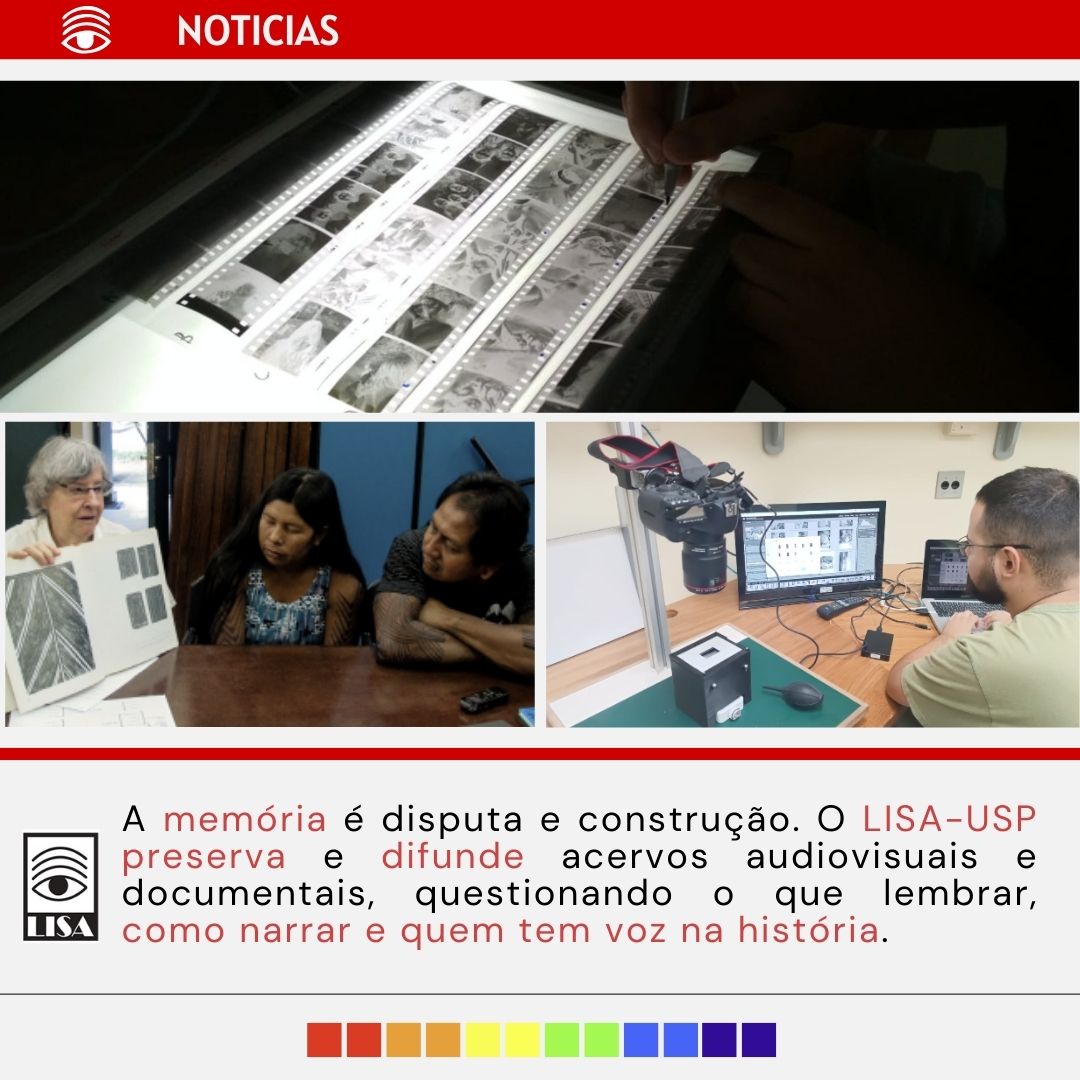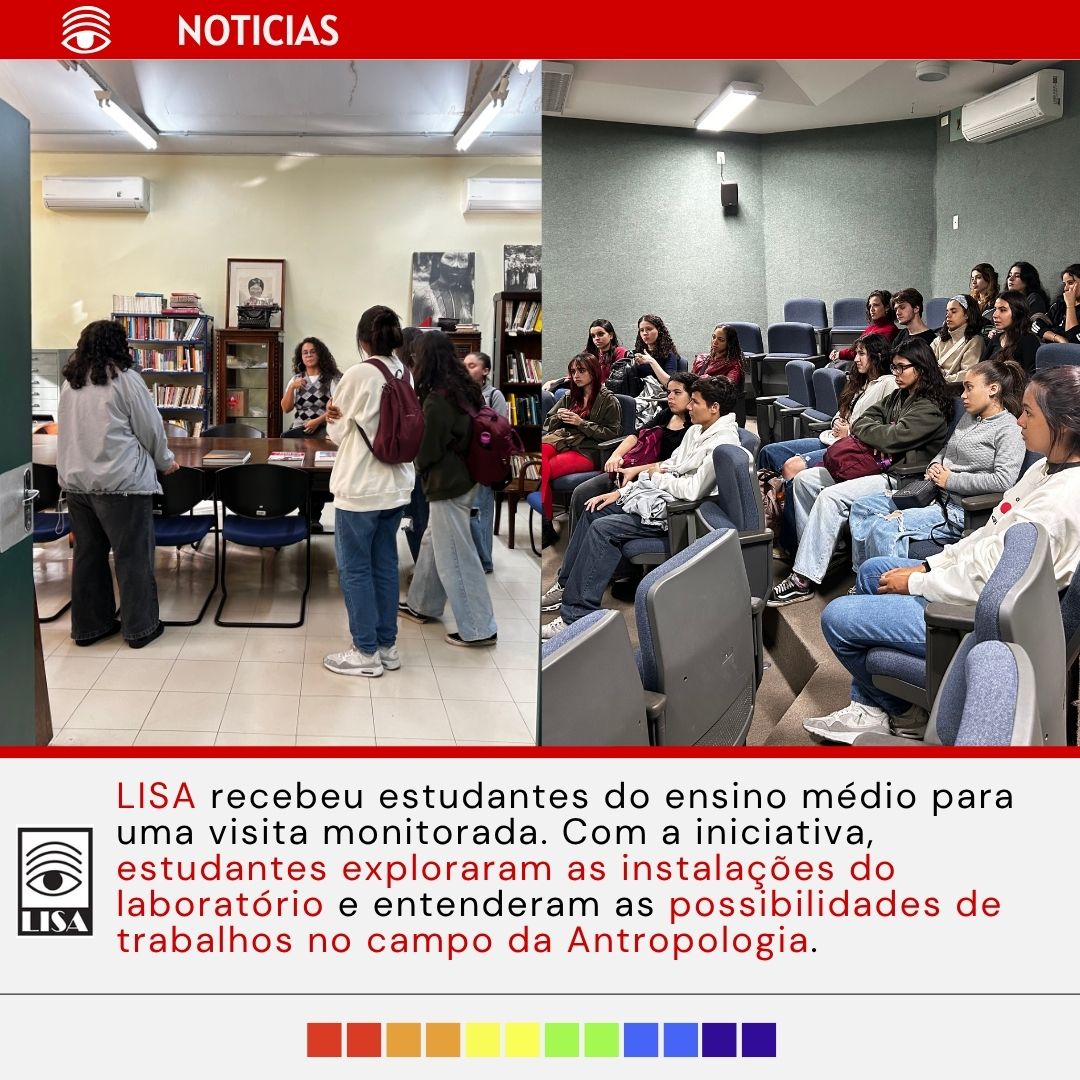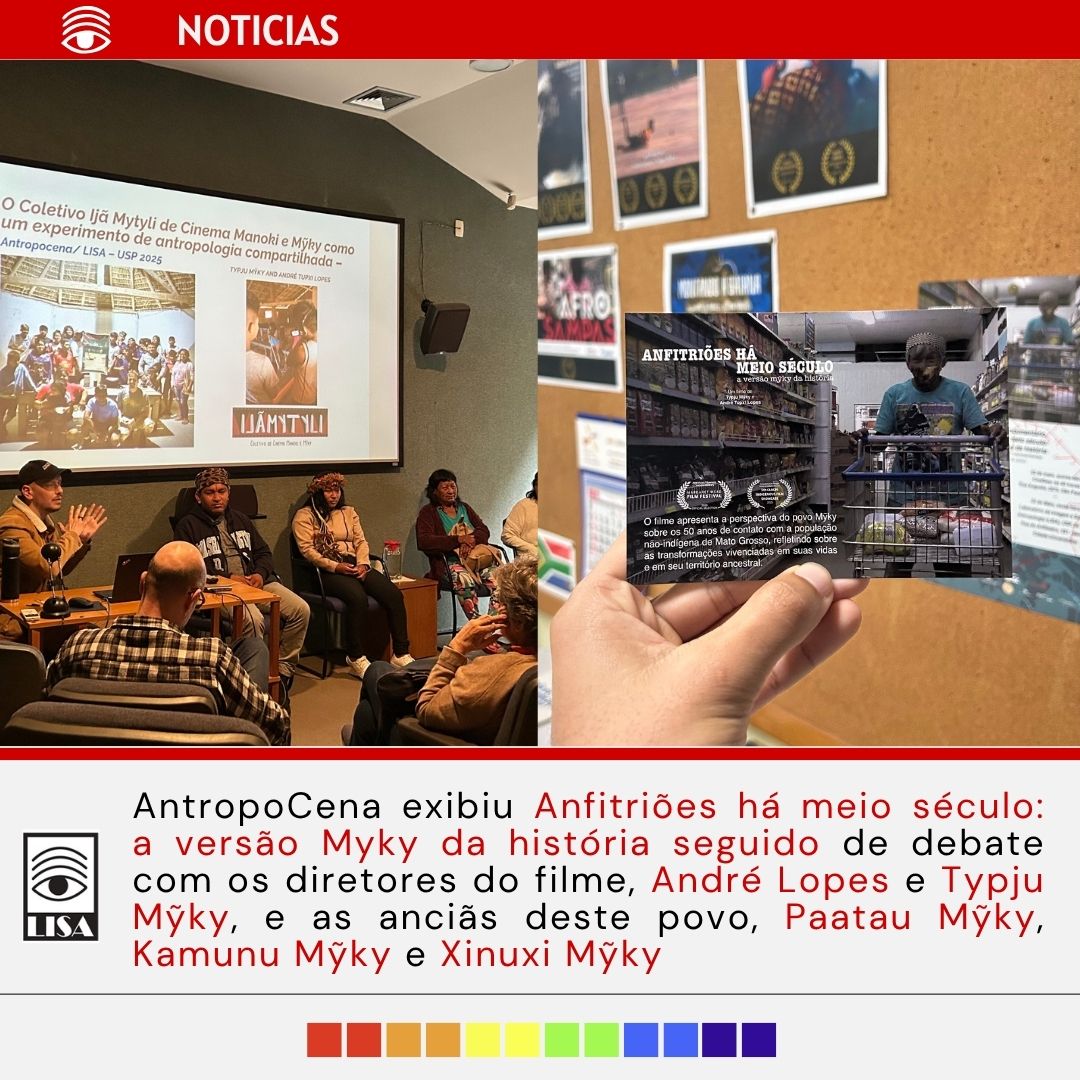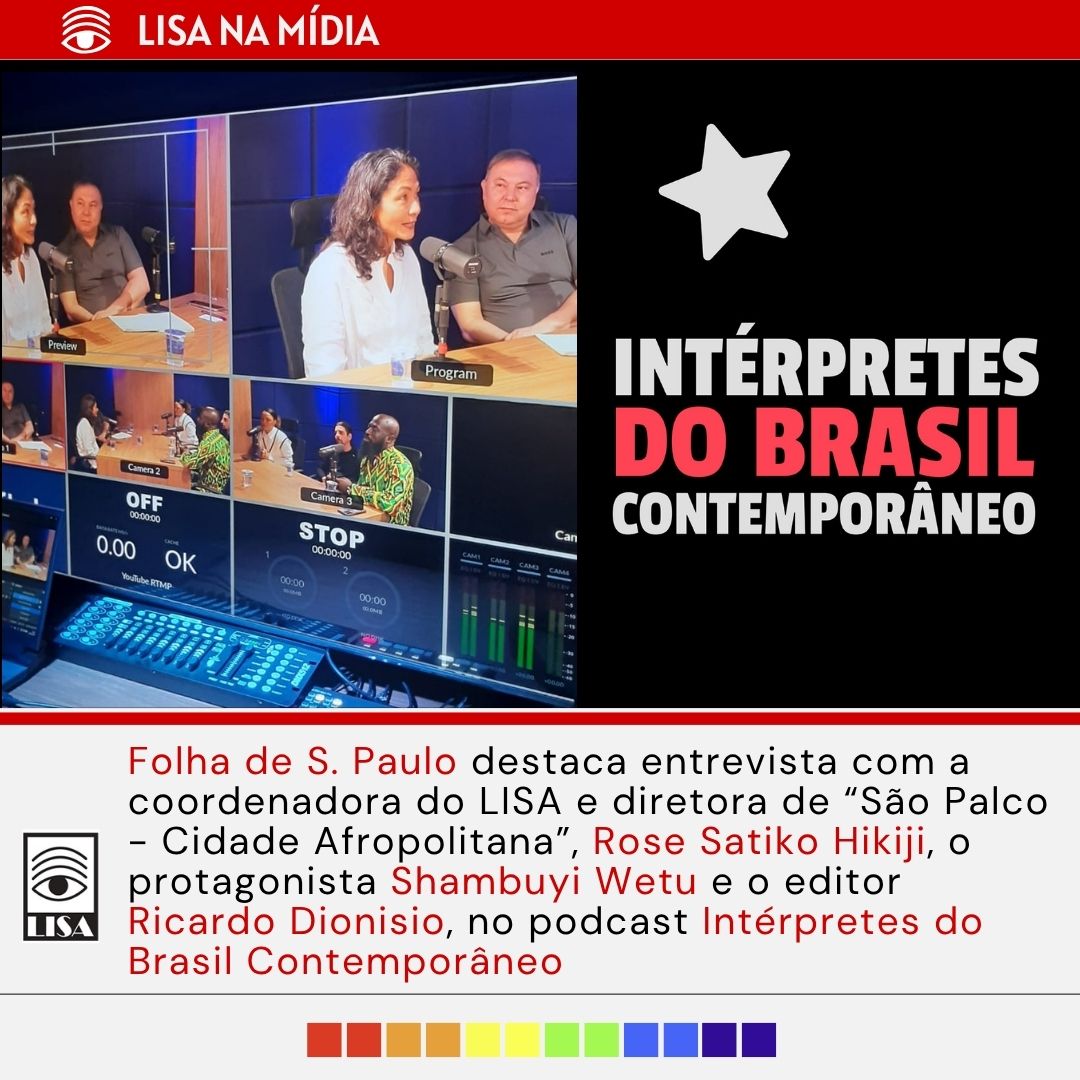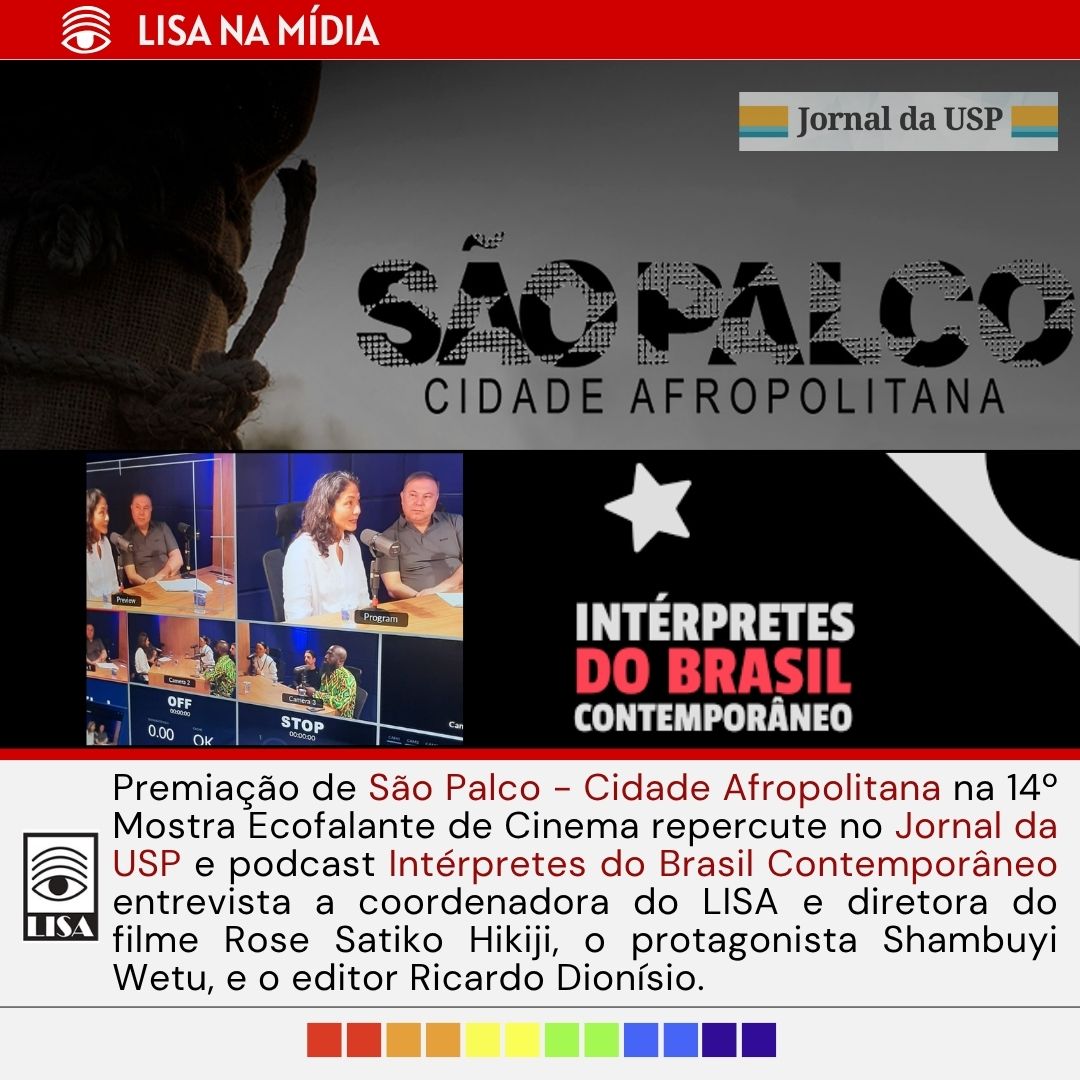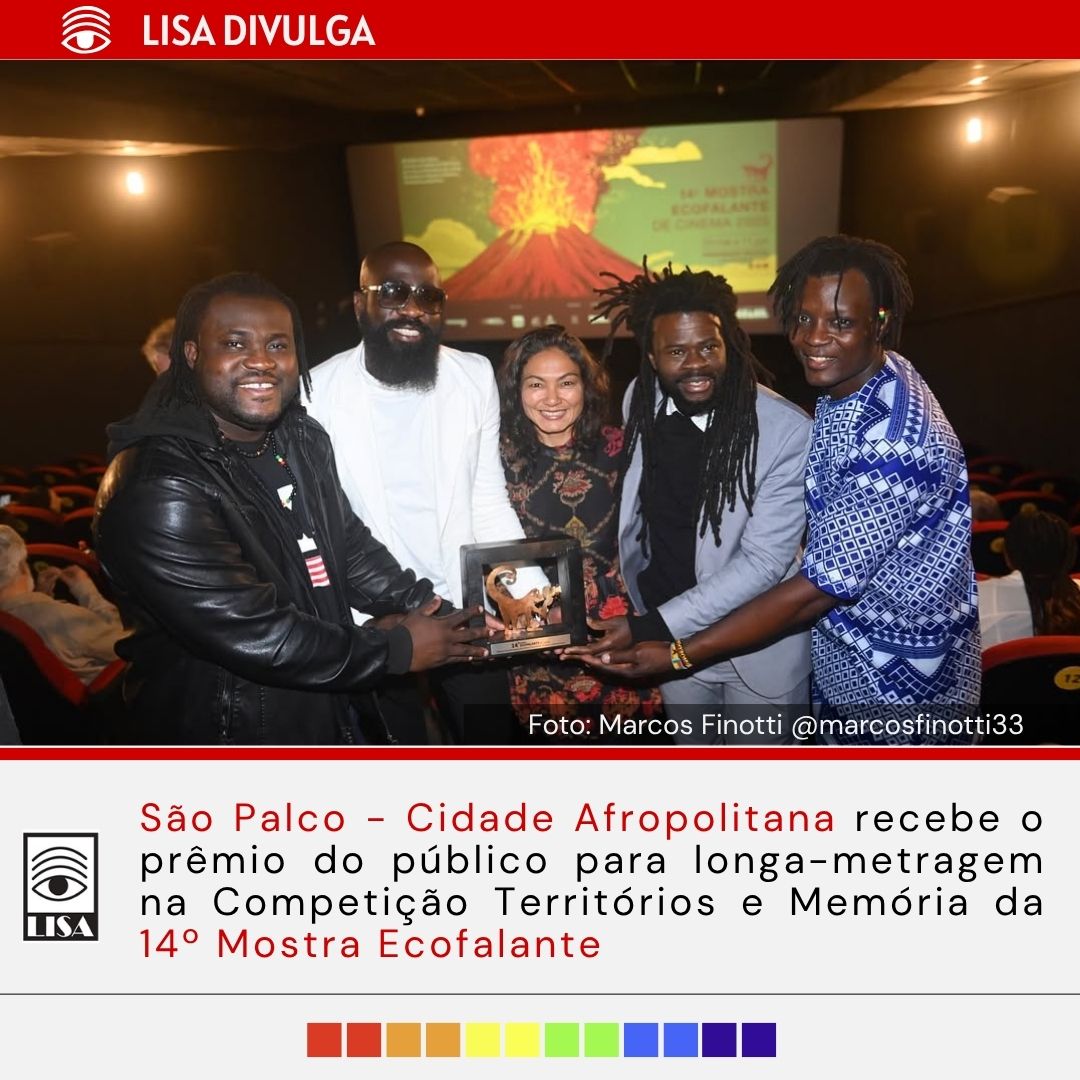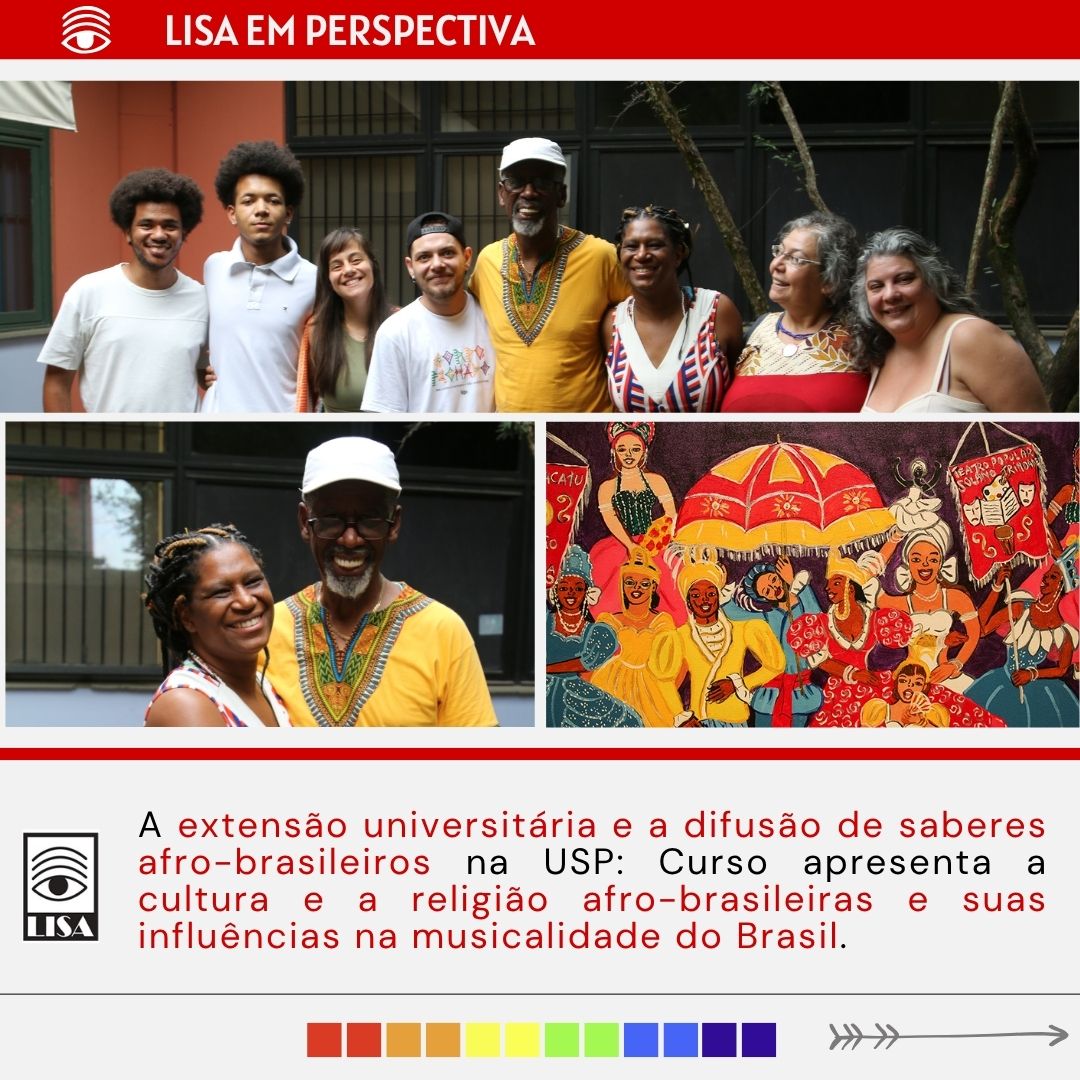News
The Image and Sound Laboratory in Anthropology (LISA-USP) releases the presentation film for the exhibition "Trajetórias Cruzadas" (Crossed Trajectories), which brought together photographs by Claudia Andujar, Lux Vidal, and Maureen Bisilliat. The exhibition was on display at the Maria Antonia Center - USP from October 2024 to February 2025.
The three women are photographers whose careers were marked by World War II, experiences in various countries, and knowledge of several languages. In Brazil, their journeys intertwined, revealing a Brazil little known even to Brazilians. Their activism for indigenous rights remains remarkable to this day.
Curated by anthropologists Sylvia Caiuby Novaes and Fabiana Bruno, the exhibition was featured in Folha de S. Paulo, and the article is available at this link.
Film Credits:
Soundtrack
Mena Barsáa (Baya Barsáa) -…
The feature film "As Far as the Eye Can See" will have its world premiere at the 53rd Gramado Film Festival and will compete for the Kikito, the event's crowning symbol. The festival, a benchmark in the consolidation of Brazilian cinema, will take place from August 13 to 23, 2025, in the municipality of Gramado, in the Serra Gaúcha region.
The news was featured on the Campinas City Hall website, which also published an article about the making of the documentary. Produced by Cisco Laboratories, a documentary production company based in Campinas, São Paulo, the film, co-directed with Hidalgo Romero, is a product of Alice Villela's postdoctoral research at the Department of Anthropology at the University of São Paulo (USP), within the scope of the FAPESP Thematic Project (Grant: 16/05318-7): "Local Musicar: New Paths for Ethnomusicology," coordinated by Suzel Reily of the University of Campinas (UNICAMP).
…"As Far as the Eye Can See" is a feature-length film (77 min) that tells the story of the struggle of the Kariri-Xocó people of Alagoas state for their lands. In the film, three generations of Kariri-Xocó Indigenous people join forces on an expedition to explore their lands, a memorial to their people, expropriated over centuries of colonization. Their language, knowledge, and even their rituals were hidden as a survival strategy. Now, armed with cameras, drones, pipes, headdresses, and maracas, they travel the geographical landmarks of their territory in a road movie that prepares for new land reclamations. The film was co-directed by Hidalgo Romero and produced by Laboratório Cisco, a documentary production company based in Campinas, São Paulo.
The work is the result of research Alice Villela conducted during her postdoctoral studies at the Department of Anthropology at USP on the relationship between the struggle for land and Kariri-Xocó music (cf. Small, 1998), under…
Memory is more than a collection of records about the past—it is a field of disputes, affections, and meanings in constant transformation. Who can narrate history? What deserves to be remembered? Where and how are traces of the lived experience preserved? These are some of the questions that permeate the work of the Laboratory of Image and Sound in Anthropology (LISA-USP), which works to preserve, organize, and disseminate audiovisual and documentary collections related to anthropology and the humanities. More than simply preserving materials, LISA cares for narratives, subjectivities, and ways of seeing the world, making archival practice also an ethical and political exercise.
Since its founding in 1991 by Sylvia Caiuby Novaes, the Laboratory of Image and Sound in Anthropology (LISA) has established itself as an important center dedicated to the preservation and production of audiovisual materials related to the…
The guided tour of the laboratory facilities took place on May 29, 2025
The Laboratory of Image and Sound in Anthropology (LISA) was pleased to welcome, on May 29, 2025, approximately 20 students in the final years of high school and college preparatory courses for a tour of its facilities. The activity was part of the guided tour to introduce the Social Sciences course at the School of Philosophy, Letters and Human Sciences of the University of São Paulo (FFLCH-USP).
The students were welcomed by the head of the Anthropology Department, Marina Vanzolini, and by undergraduate Social Sciences students and laboratory scholarship holders, Victória Gebara and Maykon Almeida, who presented an overview of the course with a special focus on the field of Anthropology, work and research prospects. It was an excellent opportunity for the students to ask questions about training in the area.
Victoria is a prominent student of Social Sciences at USP. She is currently an…
Production in partnership with an indigenous film collective explains the transformations resulting from contact with the non-indigenous population
The session of the AntropoCena project on May 23, 2025, showed the film Hosts Half a Century Ago: The Myky Version of History and featured the participation of the film's directors, André Lopes and Typju Mỹky, and the elders of this people, Paatau Mỹky, Kamunu Mỹky and Xinuxi Mỹky. The Laboratory of Image and Sound in Anthropology (LISA-USP) hosted the premiere of the medium-length film, a notable production by the Ijã Mytyli Manoki and Myky Film Collective in co-production with LISA itself.
André Lopes holds a PhD in Social Anthropology from the School of Philosophy, Literature and Human Sciences at the University of São Paulo (FFLCH-USP) and won the 2024 USP Outstanding Thesis Award in the Innovation category with his thesis “Ijã Mytyli: The Manoki and the Mỹky in their new audiovisual paths-stories”. The researcher…
The recording with the coordinator of LISA and director of “São Palco - Afropolitan City”, Rose Satiko Hikiji, the protagonist Shambuyi Wetu and the editor Ricardo Dionísio, on the podcast Interpreters of Contemporary Brazil was highlighted in Folha de S. Paulo.
The article highlights the power of ethnographic films in transmitting knowledge and discusses the work of African artists who arrive in Brazil "with their stories, knowledge and creative practices", face barriers and "create stages of resistance".
The podcast Interpreters of Contemporary Brazil is a production of the Faculty of Philosophy, Literature and Human Sciences (FFLCH) at USP. Coordinated by Júlio César Suzuki, a professor in the Geography department, the program is the result of an agreement between the Faculty and the newspaper Folha de S. Paulo.
Check out the full article in Folha:…
"São Palco - Cidade Afropolitana" was recently awarded the best feature film (voted by the public) at the 14th Mostra Ecofalante de Cinema, the main event for socio-environmental audiovisual productions in South America. The award, highlighted by Jornal da USP, recognizes the relevance of the feature film, which portrays how African artists who arrived in São Paulo in the last decade face the challenges of living in a new country and what they express in their works.
Rose Satiko Hikiji, co-director of the film and coordinator of LISA, emphasizes that the award demonstrates that university audiovisual production is capable of going beyond the walls of the University and reaching a wide audience, which recognizes the merit of the film.
The African creative diaspora in São Paulo was also the focus of the podcast "Interpreters of Contemporary Brazil" recorded on May 14, 2025. The episode "Afropolitan Art: Anthropological Readings" brings together anthropologist Rose…
"São Palco - Afropolitan City" received the audience award for feature film in the Territories and Memory Competition of the 14th Mostra Ecofalante, the most important South American event for audiovisual production linked to socio-environmental issues. The award ceremony took place on the evening of June 8, 2025, at Reserva Cultural in São Paulo
The trophy presented by Hermano Penna, the filmmaker honored at the 14th Mostra, was circulated among the protagonists present at the event: Shambuyi Wetu, Sassou Espoir, Edoh Fihon, Yannick Delass and Rose Satiko Hikiji, co-director of the film and professor at the Department of Anthropology at USP. Afro-diasporic art gains another stage, this time in the cinema.
Produced by the Laboratory of Image and Sound in Anthropology (LISA-USP), the film questions and reflects on what African artists who…
How can the university approach Afro-Brazilian knowledge? How can we understand and spread the influence of Afro-Brazilian cultural practices in areas such as music, dance, and theater? Cultural and extension activities are one of the three pillars of university life. Alongside research and teaching, extension activities are fundamental for dialogue between academia and society. Through teaching programs, outreach, and other related activities, the university can maintain and strengthen its connection with various social segments, with predominantly interdisciplinary activities that can take place outside classrooms and laboratories.
Afro-Brazilian thought is the theme of the culture and extension course The Path of the Alabê – Rhythms of the Orixás and Brazilian Music, which has been promoted annually since 2023 by the Image and Sound Anthropology Laboratory (LISA-USP).
…





